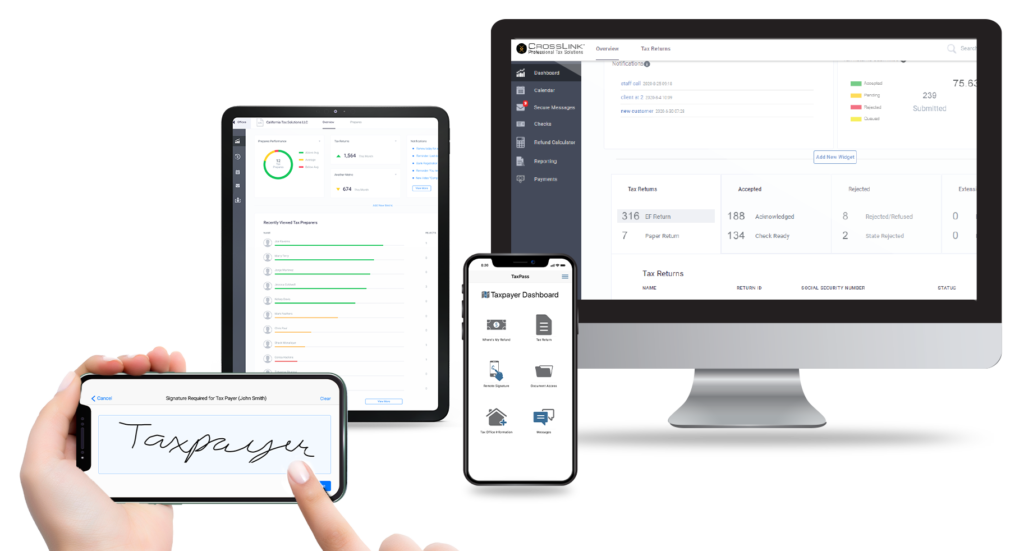Due Diligence Requirements
This page is designed to give tax preparers an overview of their due diligence requirements, which include the earned income tax credit, child tax credit, the American Opportunity education credit, and now the head of household filing status and the new credit for other dependents.
Due Diligence Requirements for Federal Refundable Credits and Head of Household Filing Status
It is important that tax preparers understand their due diligence requirements and the consequences of not following them. Asking questions of their clients and documenting their answers ensures tax preparers are meeting the knowledge portion of their due diligence requirements. The preparer due diligence requirements cover:
- Earned Income Tax Credit (EITC)
- Child Tax Credit (CTC)
- Additional Child Tax Credit (AOTC)
- Credit for Other Dependents (ODC)
- American Opportunity Education Credit (AOTC)
- Head of Household filing status (HoH)
The following is an overview of these requirements along with information on where to get more information about them.
Tax Preparer Due Diligence Requirements

IRS code section 6695(g) gives the IRS authority to penalize a tax preparer $560 for each covered refundable credit and the head of household filing status on a return that they prepare if they fail to comply with the due diligence requirements with respect to:
- Determining the eligibility for a covered credit or the head of household filing status
- The amount of the credit allowed for each of the covered credits
See the Consequences of Not Meeting the Due Diligence Requirements for more details on the penalty and other consequences for a tax preparer not meeting their due diligence requirements.
The Four Requirements
The Due Diligence Requirements may be summed up in the following Four Requirements:
- Complete and submit Form 8867 (Paid Preparer Due Diligence Checklist) for each return that the tax preparer prepares that includes one of the covered credits and/or the head of household filing status.
- Compute the credits based on information obtained from the taxpayer or information the preparer otherwise reasonably obtains or knows by completing the appropriate worksheets.
- Meet the Knowledge Requirement – The tax preparer must know the tax law and ask questions until they are satisfied, they have enough information to determine the taxpayer’s eligibility for each of the covered credits and/or for taking the head of household filing status, and the correct amount of the credit is calculated. This means the preparer, when evaluating the information provided by the taxpayer, should ask additional questions if that information appears incorrect, inconsistent, or incomplete. Any additional questions and the taxpayer’s answers should be documented and kept with the taxpayer file at the time they are asked.
- Keep a copy of all documentation and additional questions asked, along with a record of how and when you obtained the information, for 3 years.
The IRS has emphasized that the knowledge and record keeping requirements are the main reason that a preparer receives a penalty for not following their due diligence requirements. Be sure to review the Due Diligence Requirements for Knowledge and Record-Keeping page on the EITC Central website to ensure that you understand these requirements.
For more details on the law and the four requirements, see the Due Diligence Law page on the EITC Central website.
For more details and information on the preparer due diligence requirements, refundable credits, and the head of household filing status, see the following:
- Consequences of Not Meeting the Due Diligence Requirements
- Form 8867 instructions
- Due Diligence Training Module
- Due Diligence Videos
- IRS Preparer Compliance Program – How IRS determines which preparers to conduct a due diligence audit on.
- IRS Publication 501 (Dependents, Standard Deduction and Filing Information) – Head of Household Filing Status Section
- Common Errors for the Earned Income Tax Credit
- What You Need to Know About CTC, ACTC and ODC
- What You Need to Know About AOTC and LLC
- Know the Questions to Ask About Refundable Credits
- Form 886-H-HOH (Supporting Documents to Prove Head of Household Filing Status)
- Form 886-H-EIC Toolkit – Helps identify which documents a tax preparer needs to provide the IRS if they a due diligence audit is performed for a taxpayer claiming EITC.
CrossLink Professional Tax Software

CrossLink is the industry’s leading professional tax software solution for high-volume tax businesses. Built based on the needs of busy tax offices and mobile tax preparers that specialize in providing their taxpayer clients with fast and accurate tax returns, CrossLink has been a trusted software solution since 1989. CrossLink’s in-depth tax calculations, advanced technological features, and paperless solutions allow you to prepare the most complicated tax returns with confidence and ease while providing your customers an unparalleled experience.
